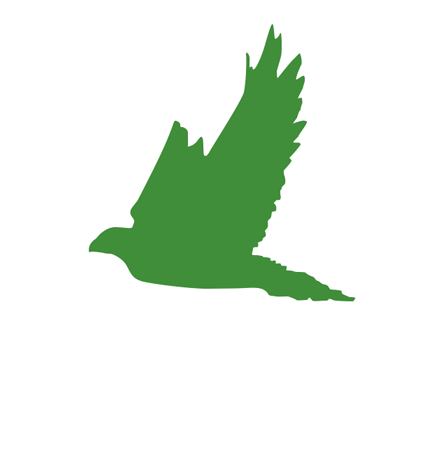The Ministry of Climate Change and Environment (MOCCAE) held a virtual media briefing today on the launch of the UAE Environmental Policy, approved by the Cabinet in late November. The policy aims to enhance quality of life, support the implementation of the Sustainable Development Goals (SDGs), promote economic diversity and prosperity, and preserve ecosystems and their ecological goods and services.
In his opening speech, His Excellency Dr Abdullah Belhaif Al Nuaimi, Minister of Climate Change and Environment, said: “Over the past 49 years, environmental protection has been at the forefront of the UAE’s priorities and an integral part of its cultural heritage. In line with the forward-thinking visions and directives of its wise leadership, the country’s environmental efforts have included establishing a comprehensive legislative and regulatory framework, and launching multiple initiatives, programs, and projects aimed at protecting the environment, preserving its natural resources, and ensuring the sustainability of its biological diversity.”
He added: “In a bid to build a better future for the current and next generations while keeping pace with local and global developments, the Cabinet has adopted the UAE Environmental Policy that provides an umbrella platform and a toolkit for building on our achievements in the field of environmental sustainability in the past years, and taking them to new heights.”
The Minister noted that MOCCAE has developed the policy in cooperation with its strategic partners following a detailed study of the current environmental situation in the country and the challenges expected in the future in line with the UAE Vision 2021 and the UAE Centennial 2071.
He explained that the policy comprises eight pillars: climate change, environmental protection, air quality, food safety and security, sustainable local crop production, sustainable local livestock production, integrated waste management, and environmentally sound chemicals management. Each pillar identifies a host of initiatives aimed at achieving its goals.
The UAE Environmental Policy aspires to maintain environmental sustainability that supports long-term economic growth. It also seeks to integrate climate change and biodiversity considerations into the relationships of entities and individuals with the environment to promote economic prosperity and diversification, and boost the contribution of the agricultural sector to the national GDP and food self-sufficiency.
The policy is one of the essential tools that determine the UAE’s future direction in the fields of climate action and environmental protection, in addition to ensuring the implementation of the country’s relevant international obligations.
Climate Change
As the most important challenge and the biggest threat to the future of humankind, and due to its negative impacts on all sectors, climate change is the first pillar of the policy. The priorities under this pillar include managing emissions with a focus on reducing carbon emissions, as well as developing flexible programs and plans to enhance the capabilities of ecosystems and diverse sectors to adapt to the effects of climate change.
This priority defines a set of targets and indicators, such as increasing the share of clean energy in the total domestic energy mix to 50 percent by 2050, cutting individual and institutional energy consumption down by 40 percent by 2030, and strengthening the country’s climate change adaptation capabilities by 2030.
Environmental Protection
The environmental protection pillar aims to build on the country’s achievements in protecting the environment, preserving its natural resources, and ensuring the sustainability of its biodiversity. It focuses on reducing the loss of indigenous species, preserving ecosystems and their services, conserving habitats, managing marine and coastal protected areas, as well as protecting, developing, and regulating the use of living aquatic resources.
Targets include protecting 22 percent of inland water areas and 20 percent of biodiversity-rich coastal and marine areas, and rehabilitating 80 percent of degraded land by 2030.
Air Quality
The air quality pillar aligns with the objective of the National Agenda of the UAE Vision 2021 to raise the National Air Quality Index score to 90 percent by 2021. It highlights the country’s efforts to improve indoor air quality that have had a positive impact on public health.
Targets include increasing the National Air Quality Index score to 100 percent by 2040.
Food Safety and Security
The food safety and security pillar focuses on developing the country’s food safety regulatory and legislative framework to match the systems in place in developed countries. It aims to build the country's credentials as a global hub for food trade, and enhance the trust of consumers and export markets in UAE food products.
It also seeks to implement the latest global technologies and systems, raise preparedness for food safety accidents, and clearly define responsibilities in emergency situations to ensure the continuity of food supply, diversify the sources of food products, and increase their availability at sales outlets in the country.
Targets include reaching a score of 100 percent on the Food Safety Index by 2040, monitoring the levels of residues in food products of animal origin by 2026, developing the National Food Accreditation and Registration System (Zad) and the National Rapid Alert System for Food, and standardizing regulatory procedures.
Sustainable Local Crop and Animal Production
The sustainable local crop and animal production pillars focus on strengthening the capacities of the local agricultural sector by adopting sustainable and climate-smart agricultural methods and expanding their use to increase production and boost its efficiency and safety through optimal use of resources.
They also aim to advance research of salt-tolerant and drought-tolerant species, implement artificial intelligence and other state-of-the-art technologies in agriculture, reduce water losses during irrigation, protect soil from pesticide residues, and enhance the application of organic systems.
Targets under the sustainable local crop production pillar include raising crop productivity per land area and volume of irrigation water by 2026, and increasing urban farming by 60 percent by 2050.
Meanwhile, the sustainable local animal production pillar seeks to position the country as a global hub for camel breeding research by 2040, and to achieve 100 percent self-sufficiency in select animal products by 2040.
Integrated Waste Management
The integrated waste management pillar focuses on cutting down on waste generation at source, and mitigating the economic, health, and environmental risks resulting from unsustainable waste treatment and disposal. It also aims to establish the UAE as a pioneering model in the field of circular economy by turning waste-related challenges into development opportunities, and transforming waste from an environmental burden into an important economic resource.
Targets include treating 75 percent of municipal solid waste by 2025 and 85 percent by 2035, and reducing municipal solid waste generation to 1.4 kg per person per day by 2025 and 1.2 kg per person per day by 2035.
Environmentally Sound Chemicals Management
The environmentally sound chemicals management pillar focuses on reinforcing the legislative and regulatory frameworks that ensure the safe use of chemicals throughout their life cycle. In addition, it seeks to raise awareness about the dangers of inappropriate and unsafe waste handling, and implement a set of high-level policies, measures, and practices aimed at minimizing reliance on hazardous chemicals and creating a new market for green industries.
Targets include increasing the use of environmentally safe refrigerants to completely eliminate ozone-depleting substances by 2040, and achieving zero accidents due to the inappropriate and unsafe use of chemicals by 2025.

 Nearby Happiness center
Nearby Happiness center  Converting PDF files to accessible HTML
Converting PDF files to accessible HTML Probelm Opening files?
Probelm Opening files? knowledge Center
knowledge Center MS Word, MS Excel,PDF Files
MS Word, MS Excel,PDF Files e-Services
e-Services Service Directory
Service Directory  Change Screen Resolution
Change Screen Resolution Find Information
Find Information